Related Research Articles

The Confederate States Army, also called the Confederate Army or the Southern Army, was the military land force of the Confederate States of America during the American Civil War (1861–1865), fighting against the United States forces to win the independence of the Southern states and uphold and expand the institution of slavery. On February 28, 1861, the Provisional Confederate Congress established a provisional volunteer army and gave control over military operations and authority for mustering state forces and volunteers to the newly chosen Confederate president, Jefferson Davis. Davis was a graduate of the U.S. Military Academy, and colonel of a volunteer regiment during the Mexican–American War. He had also been a United States senator from Mississippi and U.S. Secretary of War under President Franklin Pierce. On March 1, 1861, on behalf of the Confederate government, Davis assumed control of the military situation at Charleston, South Carolina, where South Carolina state militia besieged Fort Sumter in Charleston harbor, held by a small U.S. Army garrison. By March 1861, the Provisional Confederate Congress expanded the provisional forces and established a more permanent Confederate States Army.
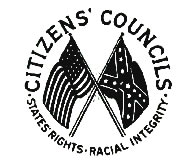
The Citizens' Councils were an associated network of white supremacist, segregationist organizations in the United States, concentrated in the South and created as part of a white backlash against the US Supreme Court's landmark Brown v. Board of Education ruling. The first was formed on July 11, 1954. The name was changed to the Citizens' Councils of America in 1956. With about 60,000 members across the Southern United States, the groups were founded primarily to oppose racial integration of public schools: the logical conclusion of the Brown v. Board of Education ruling.

Vernon Eulion Jordan Jr. was an American business executive and civil rights attorney who worked for various civil rights movement organizations before becoming a close advisor to President Bill Clinton.
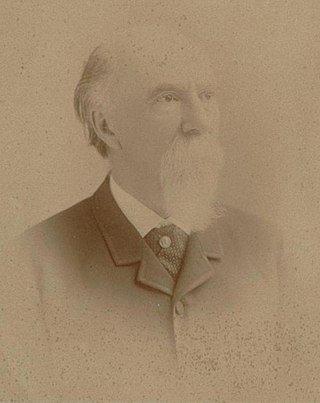
Henry Rootes Jackson was a major general in the Confederate States Army during the American Civil War. He owned 11 slaves in 1860.

Neo-Confederates are groups and individuals who portray the Confederate States of America and its actions during the American Civil War in a positive light. The League of the South, the Sons of Confederate Veterans and other neo-Confederate organizations continue to defend the secession of the former Confederate States.

Augustus Emmet Maxwell was an American lawyer and politician. Maxwell served in a number of political positions in the State of Florida including as one of Florida's senators to the Confederate States Congress, Florida Secretary of State, and as Chief Justice of the Florida Supreme Court.

Alfred Holt Colquitt was an American lawyer, preacher, soldier, and politician. Elected as the 49th Governor of Georgia (1877–1882), he was one of numerous Democrats elected to office as white conservatives took back power in the state at the end of the Reconstruction era. He was elected by the Georgia state legislature to two terms as U.S. Senator, serving from 1883 to 1894 and dying in office. He had served as a United States officer in the Mexican-American War and in the Confederate States Army during the American Civil War, reaching the rank of brigadier general.
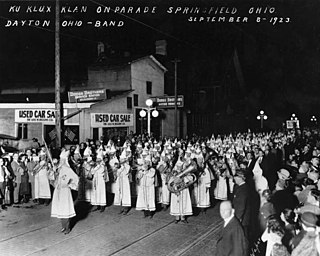
The nadir of American race relations was the period in African-American history and the history of the United States from the end of Reconstruction in 1877 through the early 20th century, when racism in the country, especially anti-black racism, was more open and pronounced than it had ever been during any other period in the nation's history. During this period, African Americans lost access to many of the civil rights which they had gained during Reconstruction. Anti-black violence, lynchings, segregation, legalized racial discrimination, and expressions of white supremacy all increased.
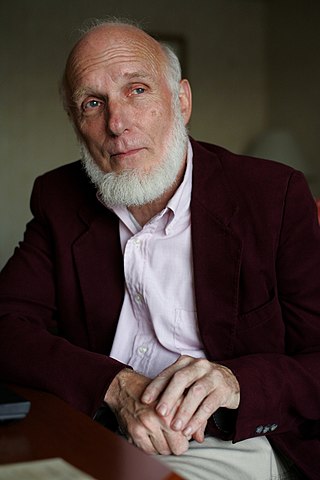
James William Loewen was an American sociologist, historian, and author. He was best known for his 1995 book, Lies My Teacher Told Me: Everything Your American History Textbook Got Wrong.
David Montgomery was a Farnam Professor of History at Yale University. Montgomery was considered one of the foremost academics specializing in United States labor history and wrote extensively on the subject. He is credited, along with David Brody and Herbert Gutman, with founding the field of "new labor history" in the U.S.
The Regional Council of Negro Leadership (RCNL) was a society in Mississippi founded by T. R. M. Howard in 1951 to promote a program of civil rights, self-help, and business ownership. It pledged "to guide our people in their civic responsibilities regarding education, registration and voting, law enforcement, tax paying, the preservation of property, the value of saving and in all things which will make us stable, qualified conscientious citizens." Instead of starting from the "grass roots," however, the strategy was to "reach the masses through their chosen leaders" by harnessing the talents of blacks with a proven record in business, the professions, education, and the church.
James M. Mannon is a professor emeritus of sociology at DePauw University in Indiana, and until his retirement held the Larz A. Whitcomb Professorship of Sociology at DePauw.
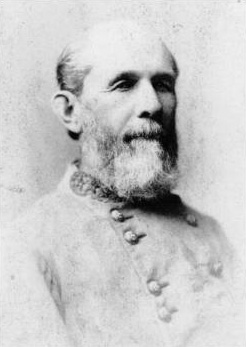
William Tatum Wofford was an officer during the Mexican–American War and a general in the Confederate States Army during the American Civil War.

John Cox Underwood was an American civil engineer, Confederate veteran, journalist and the 21st Lieutenant Governor of Kentucky.
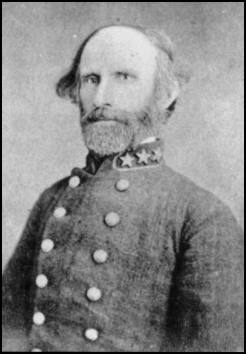
Alexander Welch Reynolds was a career United States Army officer who served in the Mexican-American War and a Confederate Army brigadier general during the American Civil War, primarily fighting in the Western Theater. After the conflict he served as a staff officer in the Egyptian Army.
Robert W. Griffith was an American historian.

George Raymond Jr. was an African-American civil rights activist, a member of the Mississippi Freedom Democratic Party, a Freedom Rider, and head of the Congress of Racial Equality in Mississippi in the 1960s. Raymond influenced many of Mississippi's most known activists, such as Anne Moody, C. O. Chinn, and Annie Devine to join the movement and was influential in many of Mississippi's most notable Civil Rights activities such as a Woolworth's lunchcounter sit-in and protests in Jackson, Mississippi, Meredith Mississippi March, and Freedom Summer. Raymond fought for voting rights and equality for African Americans within society amongst other things.

Robert Johnson Henderson was a Confederate States Army colonel during the American Civil War. His obituary stated that he was made a brigadier general by General Joseph E. Johnston, after Johnston witnessed Henderson making a desperate charge at the Battle of Bentonville, North Carolina, on March 10, 1865. At the suggestion of his divisional commanders, Henderson signed his parole as a brigadier general. Later, Henderson stated in his pardon application that he had been recommended for promotion to brigadier general but had never received a commission. Henderson commanded a brigade for several weeks at the end of the war but never was officially appointed by Confederate President Jefferson Davis and confirmed by the Confederate States Senate to brigadier general rank.
Stephanie McCurry is an American historian and a professor of history at Columbia University. Her book Confederate Reckoning: Power and Politics in the Civil War was a finalist for the Pulitzer Prize for History in 2011.
Martha Prescod Norman Noonan was a civil rights activist who is known for her work within the Student Non-Violent Coordinating Committee (SNCC) and co-editing a 2012 book Hands on theFreedom Plow: Personal Accounts by Women in SNCC.
References
- ↑ "John Avery Dittmwe born". The Tribune. 1939-10-30. p. 8. Retrieved 2023-10-21.
- ↑ "The OAH Distinguished Lectureship Program | OAH". Archived from the original on 2010-11-28. Retrieved 2009-12-27.
- ↑ "Prof. John Dittmer's New Book & Brian Mulroney's 1993 DePauw Visit Cited in Column on Health Care Reform".
- ↑ "SHS Wall of Fame".
- ↑ "Award-Winning Author and Historian, Prof. Emeritus John Dittmer, to Address 2009 Graduates - DePauw University". depauw.edu. Retrieved 12 April 2018.
- ↑ Loewen, James (2010). The Confederate and Neo-Confederate Reader. Jackson, MS: University Press of Mississippi. pp. Back Cover. ISBN 978-1-60473-219-1.